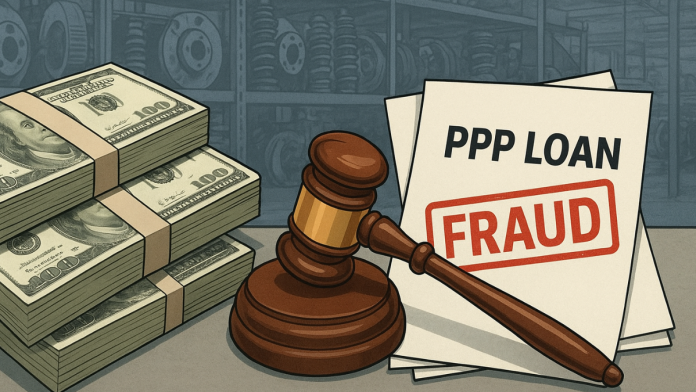Three companies based in North America but owned by Chinese government-run enterprises have agreed to pay more than $21.6 million to the United States. This payment settles allegations that they wrongfully obtained loans under the Paycheck Protection Program (PPP), a COVID-19 relief program created to help struggling businesses in the U.S.
The companies — BWI North America Inc., BWI Indiana Inc., and BWI Chassis Dynamics (NA) Inc. — are part of a larger multinational corporation that supplies automotive brake and suspension systems around the world. At the time they applied for the loans, these companies were majority-owned and controlled by state-run organizations in the People’s Republic of China.
The PPP was launched in March 2020 to provide emergency aid to businesses impacted by the pandemic. These loans, backed by the U.S. Small Business Administration (SBA), could be forgiven if businesses met certain rules. Borrowers had to prove they were eligible and tell the truth on their applications. Some rules limited the number of employees a company could have, and others banned government-owned businesses from receiving the loans.
According to the U.S. government, the BWI Entities did not meet these requirements. Officials say the companies were connected to other businesses in China, Europe, and other parts of the world, which meant they had more employees than allowed under SBA rules. Additionally, their government ownership made them ineligible for PPP funds.
Nathan Reis pleads guilt in COVID-19 relief loan fraud involving PPP program
Allegations of False Certifications
In their loan applications, the three companies certified — or promised — that they were eligible for PPP loans. But investigators allege these certifications were false. They say the companies knew or should have known they were not eligible because of their size and ownership structure.
The False Claims Act allows the government to seek repayment and penalties from companies or individuals who knowingly submit false claims for federal funds. In this case, the United States alleged that the BWI Entities obtained their PPP loans despite not meeting the legal requirements.
The investigation revealed that the companies were affiliated with other entities worldwide, and the total number of employees across all affiliates exceeded the maximum allowed by the SBA for their industry. Furthermore, because they were ultimately owned by government agencies in China, they were specifically excluded from receiving PPP funds under the program’s rules.
Despite these allegations, the companies have not admitted any wrongdoing. The settlement resolves the claims without a court ruling on whether the companies were actually liable.
Acting U.S. Attorney Richard G. Frohling for the Eastern District of Wisconsin said that the case shows the government’s commitment to combating fraud and protecting taxpayers. SBA General Counsel Wendell Davis added that the agency will continue to pursue those who improperly obtained pandemic relief funds.
Cooperation Leads to Reduced Penalties
The three companies cooperated with the government during the investigation. They identified individuals who played a role in the loan applications and shared documents from their own internal review. According to the Department of Justice, this cooperation was taken into account when deciding the settlement amount.
As part of the resolution, a whistleblower — GNGH2 Inc. — who first brought the allegations to the government’s attention under the False Claims Act’s “qui tam” provisions, will receive over $2.16 million from the settlement. This law allows private individuals or companies to sue on behalf of the government and receive a portion of the recovered funds.
The case was handled by Trial Attorney Lindsey Roberts of the Civil Division and Assistant U.S. Attorney Michael Carter for the Eastern District of Wisconsin, with help from the SBA’s legal and investigative teams. Officials emphasized that this settlement is part of a broader effort to recover pandemic relief funds obtained through fraud or misrepresentation.
The claims settled in this case remain allegations, and there has been no finding of liability by a court. However, the payment of more than $21.6 million marks one of the significant recoveries involving PPP loan misuse by companies linked to foreign government ownership.
